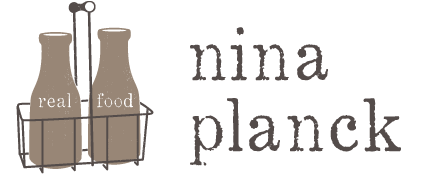Adolescence: Blessing the Rocky Path to Adulthood and Freedom
8/27/23
Illustration by Aly Mill
Your ten year-old daughter was so sweet: she held your hand and loved your cooking. When she turned 11, she loved to read, wouldn’t look up from her book if her dog sprouted a second tail. At age 12, she still sat on your lap at family parties, with everyone looking.
Suddenly all that is over. Today your teen is a dragon – scaly, with sharp claws, breathing fire. Your daughter swears at you and slams the door; you shiver as the walls rattle. Your son insults your gray hair, crooked teeth, “Jeffrey Dahmer” glasses. (I almost said, “Actually, these are my Gloria Steinem aviators,” but thought better of it.) For conversation, all you get is a flat, “What’s for dinner?” followed by “Ugh.” One morning all three of ours left the house in a hail of f-bombs. At first I laughed. When have three people told me to f- off in 30 minutes? I spent the rest of day trying to shake feelings of failure.
The first time you hear, “I hate you so much” or “You’re the worst mother ever” or “I wish Dylan’s mom were my mom” or “I wish I were dead,” you may feel weak in the knees. I did. But strangely these affronts soon become routine, lose their sting, and my skin thickens. Then I worry that low standards and cynicism are my true problem. (Sometimes a parent will say, “I never let her speak to me that way” and I will doubt.) Or I rally, adjust to the new tone, and when my guard is down, I discover the impressive novelty of mean teen behavior. Every day, it seems, my teens wield a new weapon.
As your kids finish primary school, the middle-school professionals have a unanimous message: Watch out! There’ll be rebellion, drama, cliques, narcissism, materialism, rudeness, tantrums, and enough risk-seeking to make your palms damp. Plus, even on a good day, teenagers are moody as hell.
The middle school professionals are right. Teens are intense. Those scales are scratchy, that fire pretty hot. But I love teens – not only my teens, but yours too, which is why we love it when your kids come to our house, because within each personality, driving it mad-cow crazy, is the adolescent brain itself, which fascinates me. As my friend the writer Wendell Stevenson says, “The teen brain is plastic – it’s also spastic, bombastic, sarcastic.” In other words, fantastic.
Neurology has its own vocabulary for the fizzy teen brain. According to psychologist Wendy Mogel, author of the brilliant and sane book, The Blessings of a B Minus: Using Jewish Teachings to Raise Resilient Teenagers, “There is a beautiful scientific term for the process of brain development that occurs between age ten and puberty: exuberance.”
Stay tuned for a longer essay, which I’ll publish as soon as we fix my web site glitches, about how I’ve learned to love the dragons in the house.
Sixteen years ago, I promised my husband to raise our children in the Jewish community. I did this without hesitation, because I am a naturally religious person who was raised without a religion. For a long time, I had been seeking a tent. But I was ignorant of Judaism, so in order to honor my husband’s tradition, I had to study up. That’s how I found Mogel’s book on using Jewish teachings to mother little kids, The Blessings of a Skinned Knee.
I did not read her later book on teens until after writing this. I have mixed feelings about that. On the one hand, I wish I had, because she’s so wise. On the other hand, I am tickled that I reached my own conclusions in my own time. On the challenges and blessings of the teenagers we love, we think alike.
Unlike me, however, Mogel is a professional; she is a student and healer of teen minds, and I respect expertise. So it was a comfort to learn that she, the expert, had put her thoughts down for the same reason I had: as a sticky note on the fridge. “I began writing a book because I had to,” writes Mogel, “because I needed to remind myself to love my teenagers’ rough, uneven path across the desert.” On the other side of this desert, according to her beautiful Passover metaphor, they find individuation and freedom – that is, adulthood. Notice that she says love the path. She didn’t need a reminder to love the kid.
If you celebrate Passover, Chag Pesach Sameach, and for those who don’t, I wish you a season of renewal and freedom. We will have chicken soup, lamb, and almond-macadamia nut clementine cake at our seder, and on April 9, Easter Sunday and my mother’s birthday, an egg hunt. Thank you, mother, for teaching me a love of chickens.

